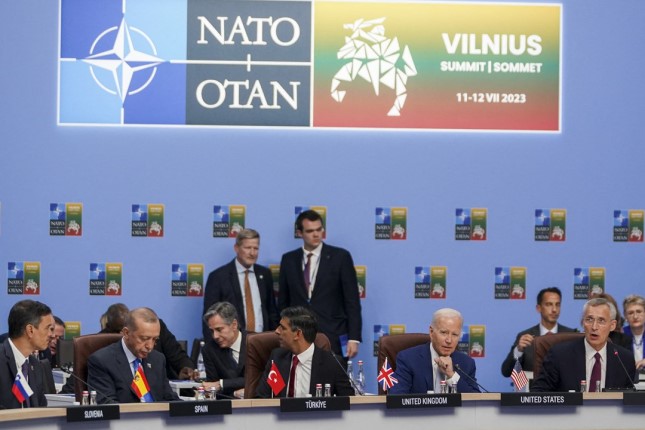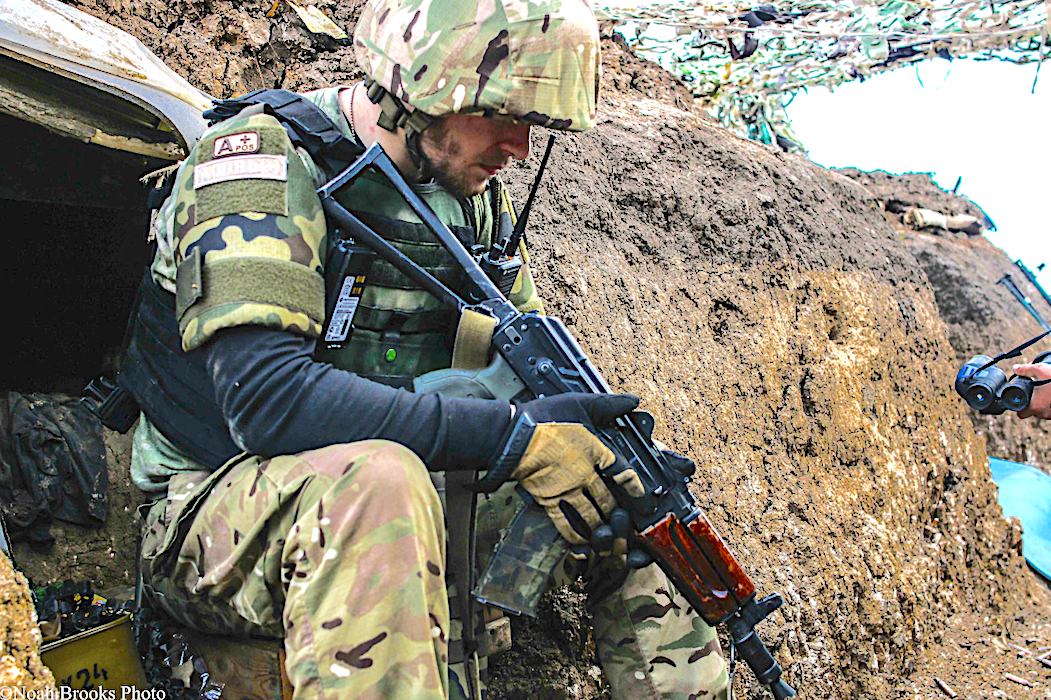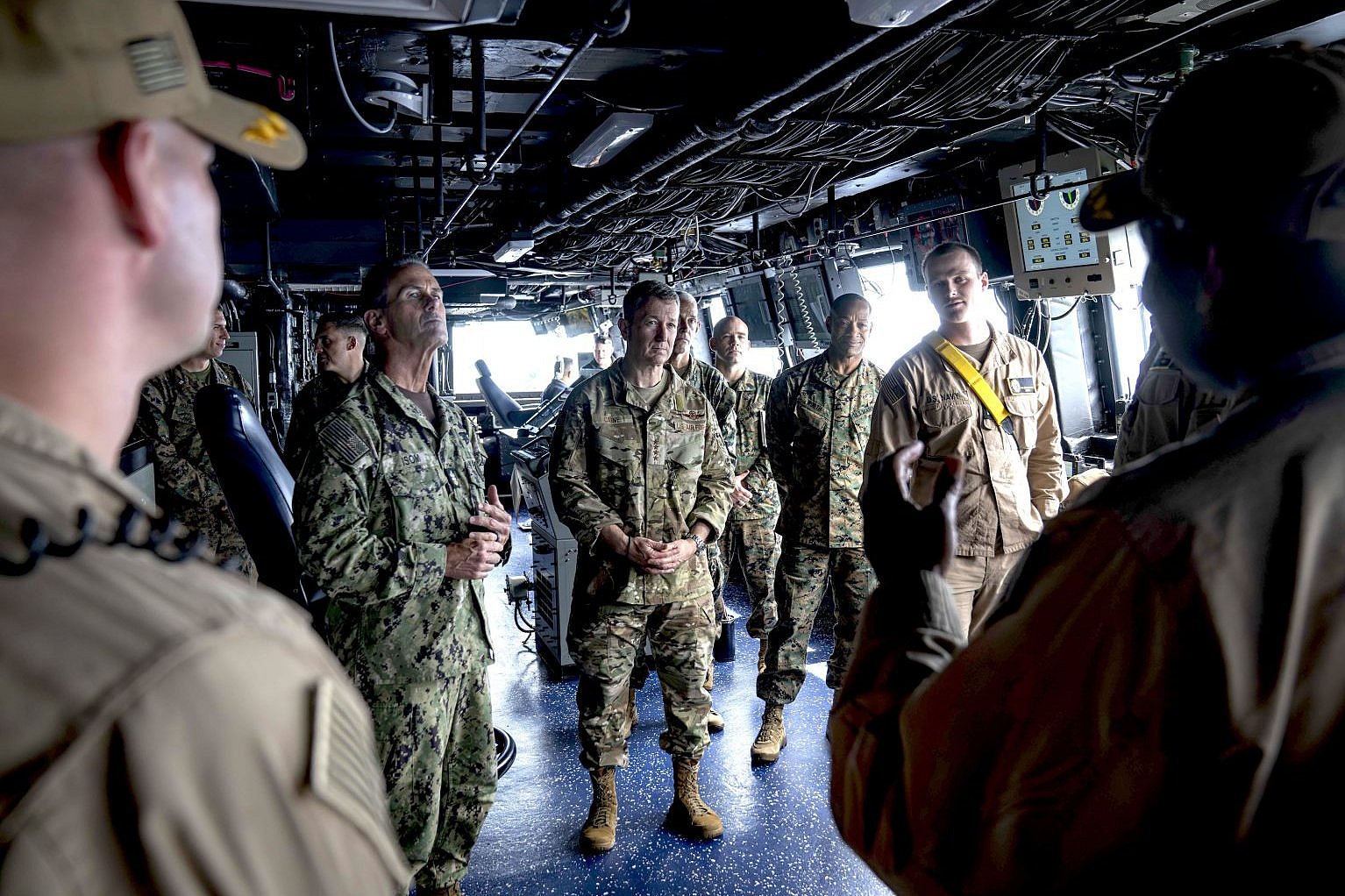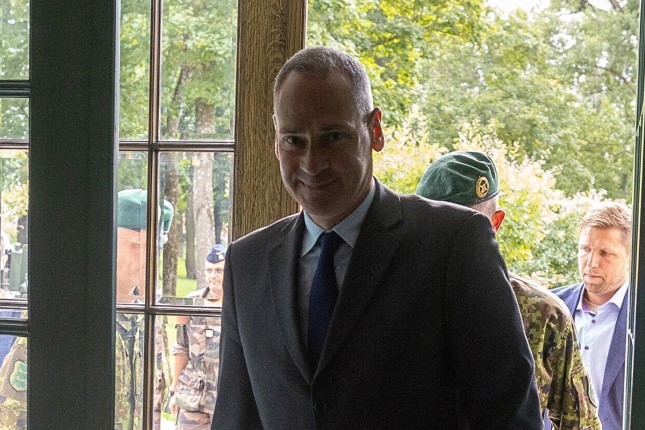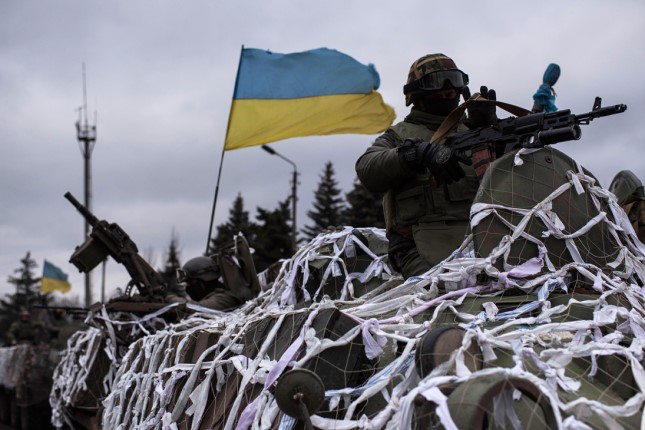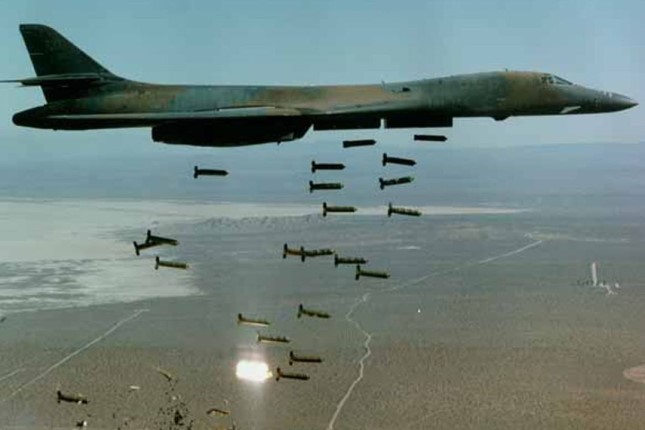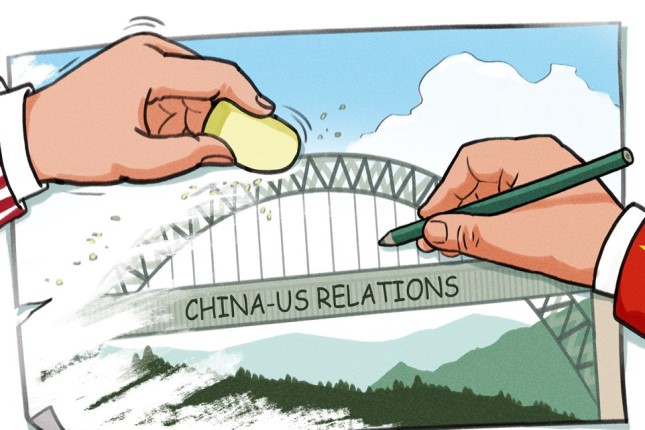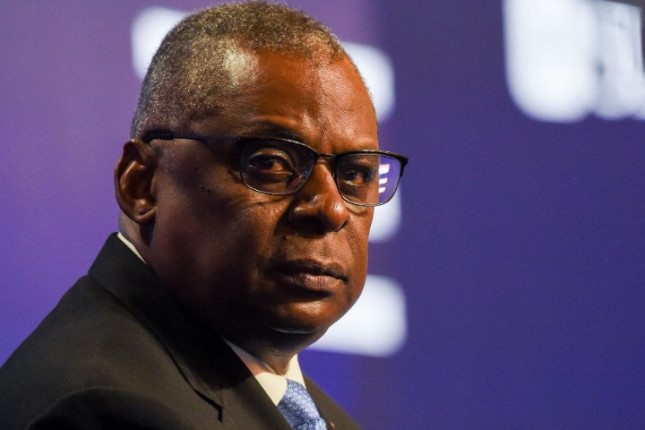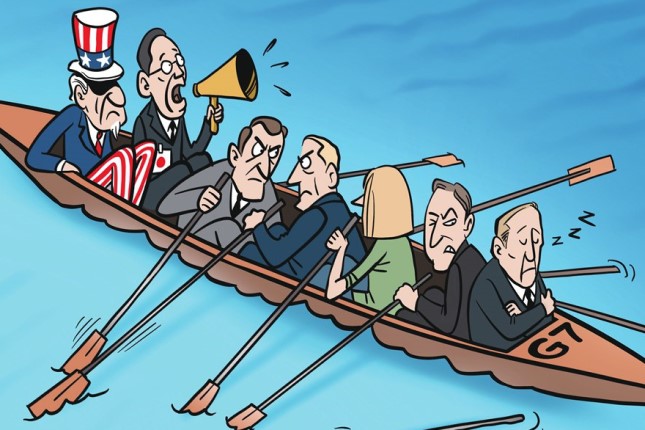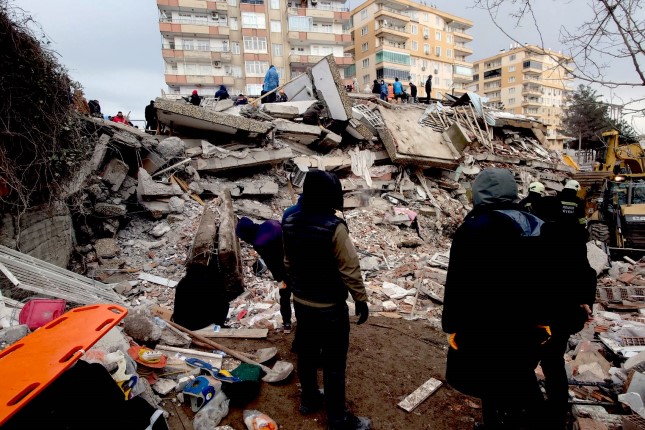The two-day NATO summit kicked off in Vilnius, Lithuania on Tuesday with the gathering of Western leaders, but behind the outward scene of solidarity, experts said there are rising divergences among the members and potential risks for the organization that might cause serious splits and disunity, meaning that long-standing challenges like the Ukraine crisis are unlikely to be resolved in the short term, which will continue to worsen the security and economic situation of Europe.
The US-led military alliance members will seek to reaffirm their support for Ukraine on Tuesday and Wednesday, overcome differences over Sweden's prospective NATO membership and display a "united stance" against Russia, according to media reports.
Although some differences seem to have been overcome for now, more potential risks and crisis in the future might cause more splits that will further undermine the unity of the organization, as some members of the alliance are trying to prioritize their own interests and push the whole alliance toward a bumpier future, said analysts.
Fragile "solidarity"
US President Joe Biden and other alliance leaders entered the first day of the high-stakes summit with "a reinvigorated sense of unity after a major win on Monday evening when Turkey agreed to Sweden's bid to join the alliance," CNN reported on Tuesday. Biden said during a bilateral meeting with summit host Lithuanian President Gitanas Nausėda that he is looking forward and being confident to see the addition of Sweden.
Turkey agreed on Monday to clear the way for Sweden to join NATO, a sudden reversal just hours after Turkish President Recep Tayyip Erdogan said that the EU should first advance his country's bid to join the union. This is the first time that Erdogan linked Sweden's NATO membership to Turkey's EU accession, media reported.
Turkey's bid to join the EU has been frozen for years after membership talks were launched in 2005 under Erdogan's first term as prime minister, Reuters reported.
Erdogan urged the "countries that are making Turkey wait at the door of the European Union for more than 50 years" ahead of his departure for the NATO summit in Vilnius to "come and open the way for Turkey at the European Union and then we will open the way for Sweden, just as we did for Finland," Reuters reported.
A European Commission spokesperson said NATO and EU enlargement were "separate processes," as "The accession process for each candidate country is based on the merits of each country," the spokesperson said, adding that the two processes cannot be linked, according to Reuters.
Ma Xiaolin, dean of the Institute for Studies on the Mediterranean Rim at Zhejiang International Studies University, said that for the EU members or NATO members in Europe, the cost or the risk of letting Turkey joining the EU is far greater than the benefits of including Sweden in NATO, and that it would be very shortsighted to trade EU membership for Turkey's agreement for Sweden to join NATO.
The plan will receive opposition from right-wing conservative forces within European countries and some EU members that have tensions and disputes with Turkey will also strongly disagree, but if the EU refuses to provide what Erdogan asked for in order to maintain internal unity, then it means Turkey would be seriously offended by the West as it agreed to open the way for Sweden to join NATO, but will get nothing in return. This will badly damage ties between Turkey and the West, experts said.
In this case, no matter what happens, it has already caused a potential crisis, and it is certain that the solidarity and unity with the EU and NATO will be challenged further, analysts said.
Ukraine's demand
Biden will have a one-on-one meeting with Ukrainian President Volodymyr Zelensky on the sidelines of the NATO Summit in Europe, the White House confirmed Monday. However, there is still no clear path for Ukraine to obtain NATO membership, media reported.
The Guardian reported on Monday that NATO members "are not expected to set clear pre-conditions" for Ukraine's eventual membership to the military alliance in the face of caution from the US and Germany while "the war with Russia continues."
Experts said that before the end of Ukraine crisis, there is no hope that NATO will grant membership to Ukraine, and all commitments made by major Western powers are serving to prolong the ongoing conflict, rather than putting an end to the bloodshed as soon as possible.
A separate package of security guarantees for Ukraine from the US, UK, Germany and France is not now expected to be announced until the end of the summit at the earliest, amid last-minute wrangling. These are intended to commit the countries to providing military aid and economic support to Kiev in the long term, according to the Guardian.
According to ABC News, NATO leaders are set to make a new defense spending pledge at their summit this week as support for Ukraine eats into their military budgets. Under a pledge made in 2014, NATO allies agreed to halt the spending cuts they made in calmer times after the Cold War ended, boost their national military budgets and move toward spending 2 percent of GDP on defense by 2024.
Song Zhongping, a Chinese military expert and TV commentator, said that the ongoing conflict in Ukraine at the moment is, in nature, a "hybrid war between the US and Russia," so unless Washington and Moscow reach agreement, there is no hope to see a solution for the crisis. Now the point is that the US is letting NATO members share the heavy burden and cost of prolonging the conflict while they also have no confidence and capability to completely defeat Russia.
Expansion to Asia-Pacific?
Against the background of the US' strategy to contain China, the plan of NATO expansion to the Asia-Pacific region has emerged in recent years, and it is expected to be a hot topic at the summit. However, NATO members, especially those who are suffering enough trouble in Europe already, are unlikely to approve this plan that only reflects the US' selfish demand of forcing its allies to contain China together, experts said.
Japanese media Nikkei reported on Monday that NATO is poised to "defer its decision on establishing a liaison office in Tokyo until autumn or later."
The US-led military alliance initially planned to enshrine the establishment of the Tokyo office in documents to be adopted at the summit, but "France has opposed the idea, caring for relations with China," and the unanimous agreement of all 31 members needed for the decision appears unlikely. The bloc will work to finalize the decision by year-end, Nikkei reported.
Cui Hongjian, director of the Department of European Studies at the China Institute of International Studies, told the Global Times on Tuesday that deferring the decision means that building a new connection with or expansion to the Asia-Pacific is not an urgent or anticipated issue for NATO.
The issue that actually matters is the future strategic direction for this organization, Cui noted, saying that members need to decide whether NATO should keep focusing on Europe and Transatlantic regions, or following the US to pivot to Asia.
One day ahead of the summit, NATO Secretary General Jens Stoltenberg said in an article published by Foreign Affairs on Monday that "NATO does not see China as an adversary. We must continue to engage with Beijing to tackle today's global challenges, including nuclear proliferation and climate change." But Stoltenberg also urged NATO members not to "trade security interests for economic gains" when dealing with China as he said China challenges "NATO's security, values, and interests."
Observers said the tone has softened compared to the past, and the summit is unlikely to spend much energy hyping the China threat theory. Yet sooner or later, NATO members will conclude an agreement on a cooperation mechanism with their Asian partners like Japan and South Korea, and they just need time to coordinate.
Lü Xiang, an expert on US studies and a research fellow at the Chinese Academy of Social Sciences, told the Global Times on Tuesday that "the US found that when it is trying to form a united front to contain China, its allies become less and less united, so now Washington might be more realistic in handling the issue of NATO expansion to the Asia-Pacific region, as this idea is not welcomed by its European allies while the mess in Europe has brought a big enough headache."
The state leaders of major European powers including Germany, Spain and France, as well as some senior EU officials, have visited China late last year or earlier this year, and recently, China-US communication has resumed with recent visits of Secretary of State Antony Blinken and Treasury Secretary Janet Yellen. This reflects that major Western powers want to stabilize ties with China, so NATO will unlikely be too provocative against China right now, experts noted.
Lü said European leaders like Macron who oppose NATO's Asia-Pacific expansion and refuse to get involved in the sensitive affairs elsewhere are actually making real efforts of "de-risking," as they are trying to let Europe stay away from uncertainties and crisis that might be caused by US unilateralism and hegemony.
Photo: Participants in the meeting of the North Atlantic Council attend the NATO Summit in Vilnius on July 11, 2023 © AFP.
Source: The Global Times.
